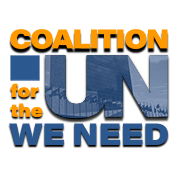Timeline to 2020:
Peacebuilding Commission (PBC) & Related PBA Reviews
Key website: United Nations Peacebuilding Commission
Background & Initial Mandate:
The United Nations Peacebuilding Commission (PBC) was established through concurrent Security Council (UNSC) and General Assembly (GA) resolutions on 20 December 2005. It was created as an intergovernmental advisory body to the Security Council (UNSC), General Assembly (GA) and Economic and Social (ECOSOC). When Kofi Annan submitted his 2005 proposal to establish the UN’s peacebuilding architecture, he focused the PBC on supporting post-conflict countries, nonetheless noting that “it would be valuable if Member States could at any stage make use of the Peacebuilding Commission’s advice and could request assistance from a standing fund for peacebuilding to build their domestic institutions for reducing conflict.” In this vein, the PBC’s founding resolutions mandated the PBC to bring together all relevant actors to marshal resources and to advise on and propose strategies for post-conflict recovery; focus attention on post-conflict recovery efforts; and assist in coordinating the interventions of UN and non-UN actors in countries emerging from armed conflict
Synergies & Fragmentation:
Tensions have existed since the PBC’s creation in 2005 (during which time UNSC reform had also stalled), with the P5 viewing the body as one which encroached on the UNSC’s prerogatives. In fact, for much of its existence, Council members have viewed the body with a fair amount of cynicism, questioning its ability to advise on conflict situations and finding its meetings duplicative to the Council’s discussions. It is also worth noting that peacebuilding entails a myriad of activities that fall under the purview of several principal organs. These organs, however, have traditionally acted in separate “silos” – the UNSC on matters of international peace and security, and the ECOSOC and GA on development, governance, and human rights. Although the PBC held the potential to bridge the activities of the three principal intergovernmental organs, it was unable to do so in an effective manner.
Changing Contexts & Re-mandating of the PBC
In 2015, the UN’s peacebuilding architecture (including the PBC) underwent a 10-year review, based on specific terms of reference approved by both the UNSA and GA. The review addressed and challenged the lens through which peacebuilding is commonly understood – as an activity undertaken solely in post-conflict situations. The operational “silos” of the UN system were also addressed by a study and subsequent report by an Advisory Group of Experts (AGE), which concluded that the PBC’s key limitations stemmed from structural shortcomings – primarily fragmentation at the intergovernmental level.
The role of PBC is changing as the body now acts as an advisory body on the full continuum (prevention to post-conflict reconstruction) of UN peace and security activity. To address the issue of fragmentation, the AGE also insisted on the PBC’s role in bridging the activities of the three principal intergovernmental organs (UNSC, GA, ECOSOC). In other words, it suggested that the PBC could only be effective if the other principal organs accepted working with it in partnership. In this vein, the 2016 sustaining peace resolutions, S/RES/2282 and A/RES/70/262, identify peacebuilding as (a) a system-wide responsibility which cannot be confined to post-conflict situations, and (b) one which calls for synergies between the PBC, UNSC, GA and ECOSOC. The PBC’s fifteen-year review is due to take place in 2020.
Additional Links & Resources:
Key Resolutions:
- S/RES/1645and A/RES/60/180, Operationalising the Peacebuilding” Commission, 30 December 2005
- S/RES/2086 (emphasizes the relationship between peacekeeping and peacebuilding), 21 January 2013
- S/RES/2282 and A/RES/70/262, Sustaining Peace resolutions as an outcome of 2015 Review, 27 April 2016
- S/RES/2413and A/RES/72/276, Follow-up to the report of the Secretary-General on peacebuilding and sustaining peace, 30 April 2018
UNSG Reports and Reform Proposals:
- A/71/792, “The Peacebuilding Fund: Report of the Secretary General”, February 2017
- A/72/525, Restructuring the United Nations peace and security pillar, October 2017
- A/72/707-S/2018/43, Secretary-General’s implementation report on peacebuilding and sustaining peace, January 2018
- A/72/772, Administrative and budgetary aspects of the financing of the UN PKOS, March 2018
Other References:
- Review of the United Nations Peacebuilding Architecture, UN document A/64/868 – S/2010/393, July 2010
- Report of the Advisory Group of Experts (AGE): “The Challenge of Sustaining Peace”, (Outcome Document of 2015 PBA Review), June 2015
- Briefing by Chair of AGE on PBA reform going forward , June 2017
- “The Peacebuilding Commission and the Security Council: From Cynicism to Synergy?”, Security Council Report, November 2017
